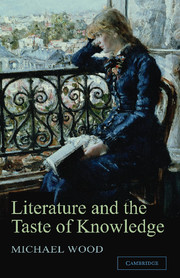Introduction: Among the analogies
Published online by Cambridge University Press: 22 September 2009
Summary
In her poem ‘At the Fishhouses’ Elizabeth Bishop contemplates the cold, clear water of a northern sea. She says she has
seen it over and over, the same sea, the same,
slightly, indifferently swinging above the stones,
icily free above the stones,
above the stones and then the world.
She has seen it and she tells us what it would be like to touch it (‘your wrist would ache immediately … and your hand would burn’). And then what it would be like to taste it:
If you tasted it, it would first taste bitter,
then briny, then surely burn your tongue.
It is like what we imagine knowledge to be.
This is not quite an imagination of knowledge, only of what knowledge resembles, but we sense the appeal and the severity of the claim immediately. Bishop's analogue for knowledge is ‘dark, salt, clear, moving, utterly free, / drawn from the cold hard mouth/of the world’, and ‘our knowledge’ itself is, she says, ‘historical, flowing, and flown’.
We may want to associate knowledge, as many poets have, with southern lands rather than northern seas, and we may want to leave geography and metaphor behind, locating knowledge only in the minds of animals, especially humans. But whatever we do, as long as we don't let go of the project entirely, we shall have made a move towards the double subject of this book: the act of representing knowledge, especially elusive knowledge, in words; and the nature of the knowledge that literary arrangements of words can offer us.
- Type
- Chapter
- Information
- Literature and the Taste of Knowledge , pp. 1 - 12Publisher: Cambridge University PressPrint publication year: 2005



